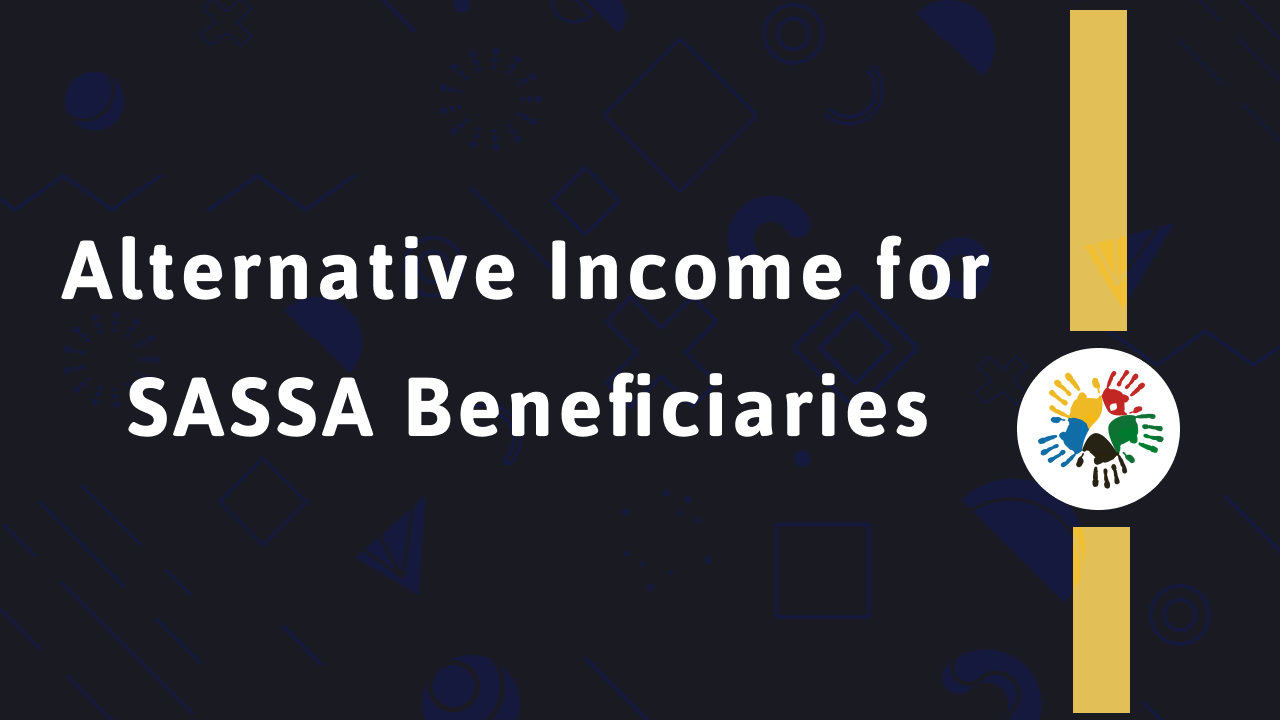Alternative Income for SASSA Beneficiaries

As South Africa continues to navigate its economic challenges, many SASSA beneficiaries are seeking alternative forms of income to supplement their social grants. While SASSA grants offer crucial financial support, they often fall short of covering all living expenses. In this article, we’ll explore what alternative income means for SASSA beneficiaries, how it can impact grant eligibility, and the key considerations to keep in mind.
What is Alternative Income?
Alternative income refers to any additional earnings outside of the grants provided by the South African Social Security Agency (SASSA). This can come from wages, freelance work, self-employment, or even investments. The aim of alternative income is to provide extra financial support, complementing SASSA grants to help individuals better meet their needs.
For many South Africans, particularly in rural areas, stable employment opportunities are limited. This has led to a growing number of SASSA beneficiaries seeking flexible ways to earn income, such as part-time work or selling goods locally. However, while earning extra income can be a financial boost, it’s important to understand how it may affect your SASSA grant eligibility.
Ke masepa fela
halala
How Does Alternative Income Affect SASSA Grants?
Earning additional income, whether through formal employment or informal work, could influence your eligibility for certain SASSA grants. SASSA employs a means test to assess whether a person qualifies for a grant. This test examines the financial status of the applicant, including any alternative income, to determine eligibility for grants like the Social Relief of Distress (SRD) R350, child support, or disability grants.
For instance, recipients of the SRD R350 grant must have a monthly income of less than R624. If your alternative income exceeds this limit, you may no longer qualify for the grant. Therefore, understanding the income thresholds and reporting any significant changes to SASSA is crucial.
Ways to Earn Alternative Income
While some beneficiaries may worry about losing their grants, there are ways to generate additional income without exceeding SASSA’s income limits. Here are a few examples:
- Freelancing: Online platforms like Upwork and Fiverr offer opportunities to provide services like writing, graphic design, or virtual assistance from the comfort of your home.
- Part-Time Work: Local part-time jobs, especially in retail or hospitality, can help you earn extra while staying within the grant eligibility limits.
- Selling Goods: Whether you sell agricultural products, handmade crafts, or secondhand goods, local markets offer a chance to make extra income without surpassing the threshold.
- Tutoring or Teaching: If you have specific skills or qualifications, offering tutoring or teaching services can be another way to earn additional income without affecting your grant eligibility.
Reporting Alternative Income to SASSA
Transparency is essential when it comes to reporting alternative income. Beneficiaries are required to inform SASSA of any changes in income, especially if it impacts the means test eligibility. Failure to do so may result in disqualification from the grant program or legal consequences.
You can report changes through the SASSA Status Website or by visiting a local SASSA office.
What If You Exceed the Income Threshold?
If your alternative income exceeds the limit, you may no longer qualify for the grant. However, it’s important to weigh the benefits of continued grant dependency against the opportunity to earn a more sustainable income. In some cases, earning more than the threshold and losing the grant may be a positive step toward financial independence.
For many South Africans, SASSA grants provide critical financial support, but with the rising cost of living, finding ways to supplement that income is increasingly important. By understanding how alternative income affects your SASSA benefits and reporting changes promptly, you can make informed decisions about your financial future. Explore flexible income opportunities that align with your financial goals while maintaining grant eligibility.
